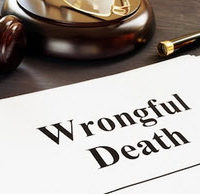TN Court Revives “Wandering Bull” Wrongful Death Lawsuit

If you have lost a loved one in a car accident, you understandably want to hold any responsible parties accountable. But proving a wrongful death claim is a complex process that may require multiple stages of litigation. This is why it is critical to conduct a full investigation of the circumstances surrounding an accident before proceeding to court.
Defendants Dispute Owning Bull Despite Circumstantial Evidence
Many wrongful death claims end at the summary judgment stage because the trial court determines the victim’s family failed to present sufficient evidence establishing the defendant’s liability. However, some trial judges jump the gun and improperly award summary judgment to the defense. A recent decision by the Tennessee Court of Appeals, Sherrer ex rel Lilly S. v. Cleghorn, provides one example of such a situation.
The plaintiffs in this unusual case are the widow and children of a man who died in a single-car accident in September 2014. The victim was traveling on State Highway 275 through Lincoln County when he “struck a bull that was wandering in the road, causing his vehicle to careen off the road and flip upside down into a creek, where he subsequently drowned,” according to court records.
The plaintiffs subsequently filed a wrongful death lawsuit, naming three defendants who they claimed were the owners of the wandering bull. One of the defendants turned out to be deceased, leaving the remaining two, a married couple who owned a farm adjacent to the road where the accident occurred, to defend the lawsuit. The defendants maintained they did not own the bull, and filed a motion for summary judgment that argued, in effect, the plaintiffs could not produce any evidence proving otherwise.
The trial judge agreed with the defendants and granted summary judgment. The Court of Appeals reversed that decision, however, noting the trial judge “blanketly accepted” the defense’s denials while simultaneously “downplaying and disregarding all conflicting evidence” supporting the plaintiffs’ complaint. For example, the defendant testified in a deposition that he was certain the bull that caused the victim’s accident could not have been his because it “looked like an Angus bull,” and he only owned Brangus bulls. But an expert witness–and the defendant’s own daughter–offered contradictory testimony that the bull in question was not an Angus bull at all, but rather a Limousin bull. Furthermore, the defendants and their family members could not agree on what types of bulls they actually owned. Given these conflicts, the Court of Appeals said it was “inappropriate” to grant summary judgment.
The Court further noted the plaintiffs produced “sufficient circumstantial evidence” from which a jury could find the bull escaped from the defendants’ farm due to their negligence. Indeed, the defendant himself admitted that “cattle had escaped in the past due to defects in his fence.” And another witness confirmed the fence had been in “bad shape” for many years, and the night before the accident he saw another bull escape.
Get Help from a Clinton Wrongful Death Attorney
Even when the cause of a fatal accident may seem obvious to you, judges and juries require concrete proof. If you need help building and pursuing a wrongful death case, you need to work with an experienced Clinton personal injury lawyer. Contact the offices of Fox, Farley, Willis & Burnette, Attorneys at Law to speak with someone today.
Source:
scholar.google.com/scholar_case?case=11317254564910972414











